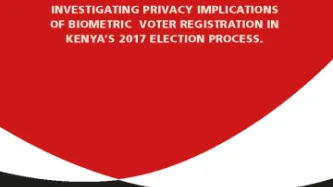Search
Content type: Examples
The Tel-Aviv-based private intelligence firm Black Cube, which is largely staffed by former Israeli intelligence operatives, was involved in a campaign to attack NGOs and businessman-turned-philanthropist George Soros during Hungary's election campaign. Between December 2017 and March 2018, agents using false identities secretly recorded the results of contacts with Hungarian NGOs and individuals connected to Soros. The recordings began appearing in the press three weeks before the election,…
Content type: Examples
Under a clause in the country's computer crime act that criminalises uploading content that is false or causes "panic", in 2018, Thailand's ruling military junta pursued a criminal investigation into a live feed on the Facebook page belonging to the rising Future Forward Party. The postings claimed that the governing party, the National Council for Peace and Order, which seized power in 2014 was using the threat of lawsuits to recruit former MPs from rival parties. The NCPO has promised to hold…
Content type: Examples
In September 2018, when Massachusetts state police tweeted a map of responses to fires and explosions during a gas emergency, they inadvertently revealed that they were closely monitoring several activist groups, including a Facebook group for Mass Action Against Police Brutality, the Coalition to Organize and Mobilize Boston Against Trump, Facebook 413, Facebook MA Activism, and Resistance Calendar. The image was taken down and cropped after half an hour, but it spurred journalists to ask…
Content type: Report
The use of biometric technology in political processes, i.e. the use of peoples’ physical and behavioural characteristics to authenticate claimed identity, has swept across the African region, with 75% of African countries adopting one form or other of biometric technology in their electoral processes. Despite high costs, the adoption of biometrics has not restored the public’s trust in the electoral process, as illustrated by post-election violence and legal challenges to the results of…
Content type: Long Read
In December 2017, Privacy International published an investigation into the use of data and microtargeting during the 2017 Kenyan elections. Cambridge Analytica was one of the companies that featured as part of our investigation.
Due to the recent reporting on Cambridge Analytica and Facebook, we have seen renewed interest in this issue and our investigation. Recently in March of 2018, Channel 4 News featured a report on micro targeting during the 2017 Kenyan Presidential Elections, and the…
Content type: Long Read
Over the past few days we've all learned details about how Cambridge Analytica was able to amass data on voters through the use of an app that would gather data on approximately 50 million Facebook users, including 30 million psychographic profiles.
This is three stories in one.
Yes, this is another story of data that has been exploited for political advantage, again. Political parties and governments continue to want access to social media intelligence and continue to develop profiles…





